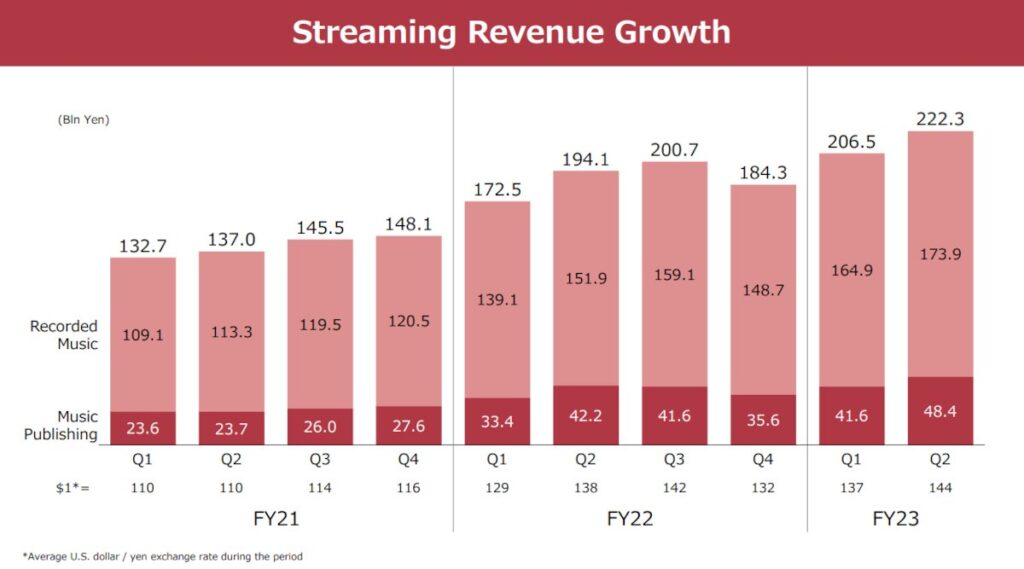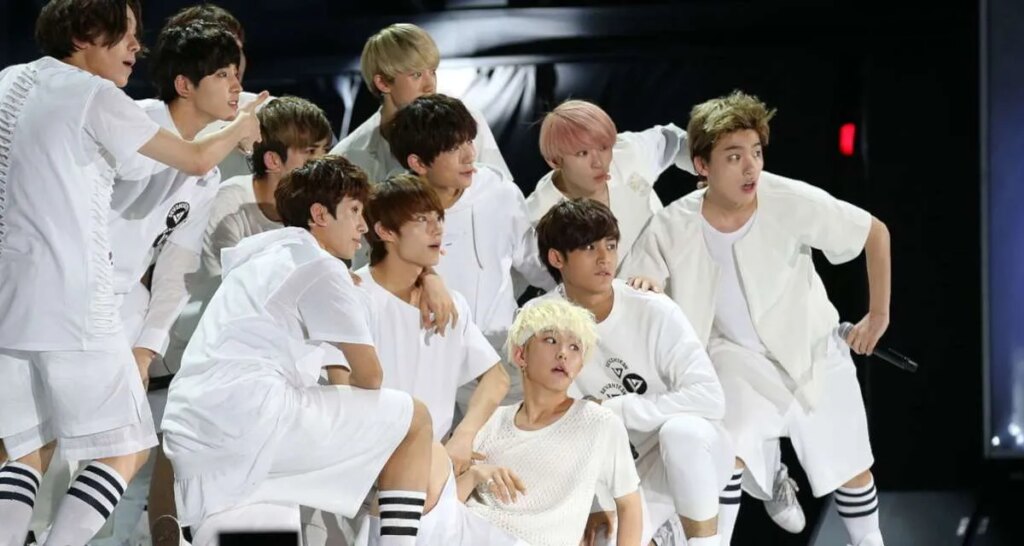Universal Music Posts Q2 2025 Streaming Growth and Physical Slide, Confirms Talks Involving ‘So Many, If Not All’ Key AI Companies

Universal Music Group head Lucian Grainge. Photo Credit: UMG
Universal Music Group (UMG) has reported over $3.4 billion in revenue for Q2 2025, when a recorded streaming expansion was partially offset by a double-digit physical decline.
That second-quarter revenue total refers specifically to €2.98 billion, up 1.6% YoY as compared to 6.4% for H1 2025 and its $6.7 billion/€5.9 billion. Behind the Q2 2025 figure, UMG disclosed $2.6 billion/€2.2 billion in recorded revenue – a 1.1% YoY improvement but down from H1 2025’s 6.5% boost to $5.1 billion/€4.5 billion.
In keeping with those percentage-growth differences, each H1 2025 recorded-side revenue category save downloads and ad-supported streaming grew at a faster rate (or retracted at a slower rate) than its Q2 counterpart, the report shows.
With top-selling acts including Morgan Wallen, Sabrina Carpenter, and Japan’s Timelesz, Universal Music posted $1.8 billion/€1.6 billion in recorded streaming revenue (up 5.1% YoY) for Q2. (In constant currency, the growth was 8.7%.)
Therein, paid listening contributed $1.3 billion/€1.2 billion (up 5.3% YoY), against $408.8 million/€358 million (up 4.4% YoY) for ad-supported.
“This growth continues to be driven primarily by growth in the number of subscribers – and to a much lesser extent certain price increases,” COO Boyd Muir elaborated during the conference call.
“With a small drag this quarter from a decline in fitness-platform revenue. Similar to last year, this quarter’s subscription growth was supported by solid growth in high ARPU established markets, including the U.S. and Japan,” continued Muir, who also touted “double-digit paid subscription growth” in Mexico and Brazil for Q2.
Rounding out UMG’s Q2 2025 recorded revenue, physical products including vinyl kicked in $354 million/€310 million (down 13.2% YoY). The major chalked up the decrease “to a difficult comparison against last year’s strong release schedule.”
License and other revenue dipped 7.9% YoY to $331.1 million/€290 million “on a difficult comparison against strong live and audiovisual revenue in the second quarter of 2024.” And thanks in large part to a $35.4 million/€31 million ISP settlement, UMG attached $78.8 million/€69 million (up 43.8% YoY) to downloads for Q2.
Shifting to publishing, the Universal Music Publishing Group parent identified $650.9 million/€570 million in second-quarter revenue, up 11.5% YoY.
As usual, digital was the biggest driver ($400.8 million/€351 million, up 12.9% YoY) here. Performance followed with $126.8 million/€111 million (up 11% YoY), as sync ($75.4 million/€66 million, up 8.2% YoY), mechanical ($32 million/€28 million, up 7.7% YoY), and other ($16 million/€14 million, also up 7.7% YoY) trailed.
Finally, with a tough prior-year comparison cited once again, Q2 merch and other revenue fell 15.4% YoY to $219.3 million/€192 million.
All told, Universal Music pointed to $697.7 million/€611 million (up 5.3% YoY) in Q2 EBITDA, with H1 2025 net profit of $1.6 billion/€1.4 billion (up 56.7% YoY); the latter stemmed in part from share-price growth within UMG’s portfolio.
Closing with UMG’s Q2 2025 earnings call, execs touched on a few noteworthy topics.
First, CEO Lucian Grainge doubled down on his belief that Virgin’s Downtown deal, despite facing an intensifying European Commission investigation, “will be completed before the end of the year.”
Next, higher-ups in more words reiterated their ongoing superfan-tier discussions with DSPs as well as the plans’ perceived monetization potential – albeit while opting against revealing release details.
And perhaps most interestingly, chief digital officer Michael Nash shed light on AI components of UMG’s streaming service deals, including protections from royalty-rate dilution.
“We continue to secure very important AI protections in our agreements with music services,” said Nash. “These measures vary according to the nature of different partnerships.
“But they include working to ensure that AI models will not be trained on our artists’ work without consent. AI recordings trained on our content will be removed. AI-generated music will not dilute our artist royalties. … Various monitoring requirements are also included in these agreements,” he indicated.
Meanwhile, Grainge directly confirmed licensing discussions with gen AI companies. “We’re in dialogue with so many, if not all, of the important players in the AI space,” he added, acknowledging as well forthcoming partnership announcements.
Link to the source article – https://www.digitalmusicnews.com/2025/07/31/universal-music-group-earnings-q2-2025/
-
Mrchrogge Guitar Measuring Ruler Stainless Steel T-Shape Guitar Ruler 9 Piece Electric Bass Fingerboard T-Shape Guitar Curvature Ruler$12,88 Buy product
-
Donner DDP-80 Digital Piano 88 Key Weighted Keyboard, Full-size Electric Piano for Beginners, with Sheet Music Stand, Triple Pedal, Power Adapter, Supports USB-MIDI Connecting, Retro Wood Color$659,99 Buy product
-
Pintech Percussion LMA-C Mounting Clamp$11,94 Buy product
-
Seismic Audio – Package – Two 18 Inch PA Subwoofers PRO Audio Band Speaker Cabinets Sub – Band, Bar, Wedding, Karaoke, DJ, 18″ Cabs 1000 Watts RMS$621,99 Buy product
-
Podcast Equipment Bundle, BM-800 Recording Studio Package with Voice Changer, Live Sound Card – Audio Interface for Laptop Computer Vlog Living Broadcast Live Streaming YouTube TikTok (AM100-V8)$39,99 Buy product
-
BOMGE mini 2 Channel USB Audio Interface for Recording, Streaming and Podcasting, with XLR/48V Phantom Power,Studio Quality Audio Interface for Guitarist, Vocalist, Podcaster or Producer$32,50 Buy product













Responses